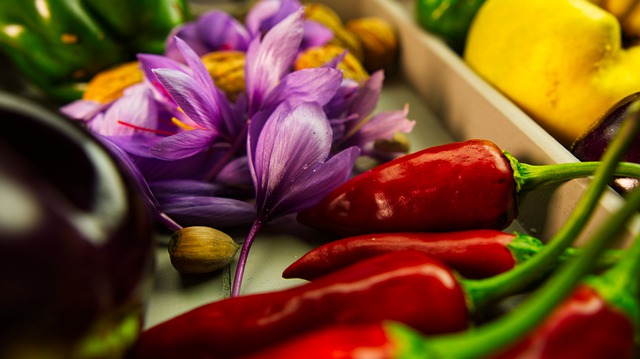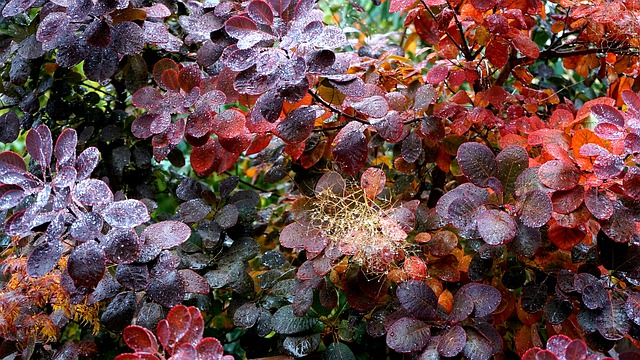In the world of organic gardening, there are plenty of great resources available to both new and experienced organic gardeners alike. There are many e-guides, books, videos, and other resources available. This set of tips contains some of the best advice for helping a good organic gardener become a great organic gardener.
Add aspirin to your plants to help them fight sickness. Try dissolving around one and one half aspirins into around 2 gallons of water for your plants. Spray your plants with the water if they have a disease. Apply this solution to your plants every few weeks.
Your children will enjoy being involved with your organic gardening endeavors. Gardens are a wonderful place for kids to learn, and working side by side with them can strengthen the bond that you have.
When growing plants inside of the house, you should ensure the thermostat is set at around 65-75 degrees in the daytime. The temperature needs to be this warm so they are able to grow. If you don’t like keeping your home that temperature in the winter, you may wish to consider getting a heat lamp, instead, to keep your organic plants the correct temperature.
Be sure you plant strawberries in your garden for your children, you want to make sure you especially plant everbearing strawberries as well. Children love to pick their own fruit right out of the garden, and will be more willing to help with the process if they get something out of it.
When you are cultivating an organic garden inside, you should think about the lighting situation. The amount of light available can determine which type of organic plants you should grow. For example, if your living area does not provide much natural sunlight, you could grow those plants that only need low to medium amounts of natural light to thrive. If this is not an option, or you have your heart set on a particular type of plant, consider adding additional growing lights instead.
A mixture of aspirin and water can protect your plants from common diseases. Dissolve one aspirin and a half for 2 gallons of water. You can simply spray them with the mixture to help aid them in fighting off diseases. Apply at three week intervals.
Have your tools for gardening nearby in order to maximize your efficiency with gardening. Keep the tools in a big bucket, or store them in strong pockets in your pants. Tools you’ll need to garden efficiently include towels, gloves, pruning shears and other plant-specific tools.
If you are looking at creating an endurable organic garden, you should think about keeping some of your property vacant so that wildlife may flourish there. A natural area will allow beneficial birds and insects, many of which pollinate plants, to live on your property and help your garden grow stronger.
Do not underestimate pine as great mulch. Some garden plants have a higher acidity, and prefer a more acidic soil. If you have these plants in your garden, keep them healthy by using pine needles as mulch. Lay a few inches of needles over the beds to allow them to decompose and add some acid to your soil.
It is important to keep the temperature set between 65 and 75 degrees, if you wish to raise plants in the home. This is the optimum temperature to ensure strong growth. Heat lamps can be used to promote growth without the necessity of raising your home’s interior temperature.
Put used coffee grounds on the soil. Coffee grounds have a lot of nutrients that plants can use. Plants need nitrogen in order to thrive, so give it a natural source with coffee grounds, then watch everything come to life much more quickly.
To be more efficient when working in your organic garden, have your tools close at hand. You have several options including using a bucket to hold your tools or wearing pants with lots of sturdy pockets. Keep your gloves, pruning shears, a hand spade and your other tools handy to quickly and easily do your garden maintenance.
A useful technique for organic gardening, is to gently disturb your seedlings by using your fingers or a piece of cardboard one or two times daily. While this appears strange, research shows it can help plants grow larger, versus not petting them at all.
Planted flowers will benefit from organic materials that are built up to as much as three inches. Mulching helps to hold moisture in the soil, enhance the soil quality, and slow down the growth of weeds. Mulch will also improve the general appearance of your flower beds.
Try using a beer trap to naturally eradicate slugs from your organic garden. Place a container in the ground so that the lip is even with the soil surface. Fill that with beer just under an inch from the top of your jar. Slugs will be attracted by the beer and fall into the jar.
Pine Needles
Construct raised flower beds of brick, stone, or wood. Choose wood that is naturally resistant to rot and is untreated. Several species of trees yield suitable wood. Locust, cypress, and cedar are among the more commonly used rot resitent woods. Never use compost from treated woods in a veggie garden; the chemicals can contaminate your food. If you have used treated lumber, line your beds with plastic.
Pine needles make a great organic mulch. There are many common acidic plants that prefer acidic soil. For these types of plants, pine needles are wonderful for mulching. Spread the needles over the beds in a layer that is approximately 2-inches deep. Over time, the needles will begin to decay, supplying the soil with acid as they do.

Certification is important in order to be considered a legitimate organic gardener. Having certification will increase your sales and verify to your customers that what you are selling is the best produce available.
You need to avoid chores in your organic garden stacking up. There are certain little things to help you keep up with your garden, even if you don’t have the necessary time each day to do everything. Grab a handful of weeds, throw down some mulch, or toss some water on it anytime you walk by.
It can be hard to grow an organic garden without chemicals, but the end result is worth the effort. Even though the claims of the chemicals may be astounding, the organic way is always going to provide the best reward to you and whoever is eating your crops.
When it’s harvest time, you should utilize a basket that you put laundry in to carry your veggies. This will be like a strainer for all your produce. Doing this allows you to both rinse and drain your fresh produce.
Add mulch to keep your soil healthy. Mulch will protect and nourish the soil. It prevents soil temperature from getting too warm on hot, sunny days, which protects your plants’ roots. The layer of mulch will also minimize evaporation, reducing your need to water as frequently as you would a garden without mulch. As an added bonus, weed growth will be stunted.
Creating a trap with beer can help reduce the number of slugs in your garden. Take a glass jar and bury it so that the soil is even with its mouth. Pour enough beer into the jar to fill it below an inch from the top. Slugs are attracted to the beer and become trapped in the container.
Make sure you look at what lies beneath in order to start off on the right foot. For instance, if you buy tomato seedlings for an organic plot, be cautious if you find green, lush-looking starts that have underdeveloped root systems. These kind of starts stay on these seedlings for weeks at a time; this doesn’t allow the seedling to grow unless the starts are gone.
For claiming your crops are credible and truly organic, get organic garden certified. That way, you will realize greater sales volume and demonstrate the value of your produce to potential and returning customers.
Stagger you vegetable planting so you will have a new harvest every month or so. The reason is, this will prevent your entire harvest from coming in all at once. Also, if something goes wrong during one harvest, all your tomatoes won’t be ruined.
Though organic farming can present challenges that traditional farming with the use of chemicals does not, harvesting the crops is reward itself for the hard work. While chemical companies may make astounding claims about their products, growing organically is the most rewarding option for you and those who consume your crops.
At least 3″ of organic mulch should be added to the flower beds and garden. The soil will be nourished and will be able to retain more moisture. Also, weeds won’t grow as easily and the whole area will more professional.
Organic Gardening
If you’re trying to decide how to water the plants in your organic garden, consider a soaker hose. You can direct the water to the roots, and let it seep slowly. Not only do you eliminate the tediousness of having to hand-water your plants, you will also reduce the amount of water that you use.
Any form of gardening helps you get in tune with the environment, but organic gardening takes this concept to the next level. Organic gardening will give you a great idea of the gardening process.
Organic gardening is simple and effective! When choosing plants for landscaping, stick to native flowers, shrubs, and grasses. If you select plants able to thrive in your climate, soil variety and indigenous neighbors, you can cut the amount of fertilizer and pesticide you might need. Native plants will thrive with only natural compost.
Annually rotate your garden layout or plan. When you continuously plant some plants from the same family in the same area every year, disease and fungus is encouraged in these areas. These harmful elements remain in the soil and can damage the plants you place in that spot the following year. Changing your planting layout will allow you to avoid costly problems and have large, bountiful plants.
If you are planning to plant trees or shrubs in your yard, you should pay close attention to the hole that you have dug. If you see that the sides of the hole appear shiny, you’ve probably packed the dirt to tight, which can interfere with the roots.
With the above information in hand, you now know a little bit about what is needed to succeed as an organic gardener. There is a lot of information to be had and you need to know how to apply it. With this in mind, you can refine your own methods to successfully grow a beautiful organic garden.
No matter what kind of garden you have, weeds are a pain. As you can see, there exists a weed killer that’s organic and that’s safe to nature and you.
There is a lot to consider when you are learning about natural latex pillow
nurse home waterproof mattress protector
mattress and box spring encasements. The hints and advice here will get you on your way to better understanding natural latex pillow
nurse home waterproof mattress protector
DAHUA surveillance camera
DAHUA NVR P
mattress and box spring encasements. You don’t have to stop here; keep learning more about natural latex pillow
nurse home waterproof mattress protector
DAHUA surveillance camera
DAHUA NVR P
mattress and box spring encasements.














